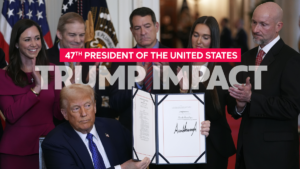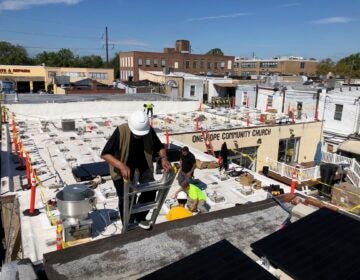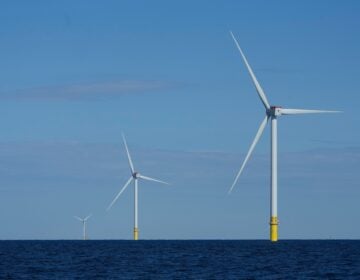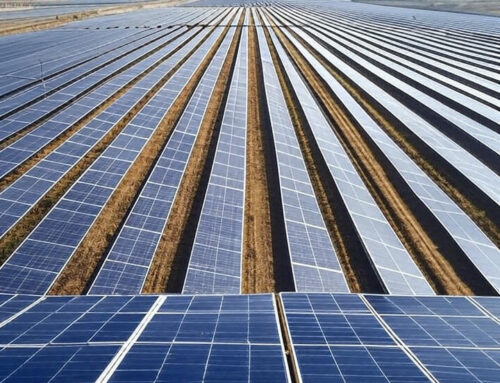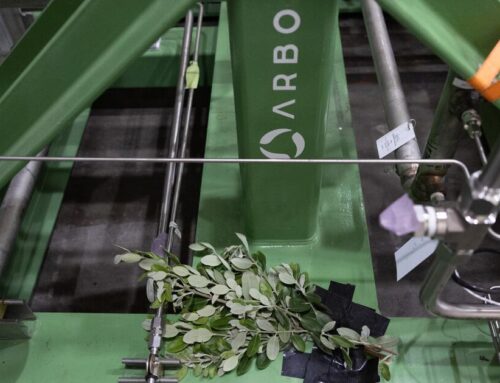Philly region’s MACH2 hydrogen hub spared from Trump’s clean energy cuts
October 4, 2025
This story is part of the WHYY News Climate Desk, bringing you news and solutions for our changing region.
From the Poconos to the Jersey Shore to the mouth of the Delaware Bay, what do you want to know about climate change? What would you like us to cover? Get in touch.
The Philadelphia area Mid-Atlantic Clean Hydrogen Hub, or MACH2, was spared in the latest round of Trump administration cuts this week that included two planned hydrogen hubs in California and Washington state, along with more than $43 million for projects in Delaware and New Jersey. No clean energy projects were eliminated in Pennsylvania, which President Donald Trump won last November.
The Trump administration targeted $7.5 billion cuts on the first day of the federal government shutdown in what Office of Management and Budget director Russell Vought referred to in a post on X as “Green New Scam funding to fuel the Left’s climate agenda.”
The hydrogen hubs were a signature part of the Biden administration’s climate goal to achieve net zero carbon emissions by 2050 — meaning the amount of carbon dioxide going into the atmosphere is balanced by removing carbon emissions over a period of time. This requires replacing coal and oil with cleaner fuels. The goal of MACH2, a public-private consortium of hydrogen producers and consumers, is to fast-track commercial scale “clean hydrogen” production — meaning using renewable energy to produce hydrogen rather than fossil fuels. The bulk of the country’s hydrogen is now manufactured in a carbon intensive process using natural gas.
In January, just two days before Trump took office, MACH2 officials inked a final deal with the U.S. Department of Energy, freeing $18.8 million dollars, with a federal cost share of up to $750 million, to jumpstart hydrogen-powered manufacturing and transportation in the region that includes projects in Pennsylvania, New Jersey and Delaware.
MACH2 Chief Operating Officer Manny Citron said he has since worked hard to forge good working relationships with both DOE staff and a bipartisan group of lawmakers that includes Pennsylvania’s Republican Sen. David McCormick, Department of Energy Secretary Chris Wright, and Pennsylvania Democratic Gov. Josh Shapiro.
“We really appreciate working with Sen. McCormick and his staff, they have been incredibly supportive,” Citron said. “It is really something that you wouldn’t typically expect, but both sides of the aisle are coming together to say this is an important program to generate jobs for the U.S.”
Citron said that, despite some challenges, MACH2 and its partner manufacturers are moving “full steam ahead to produce affordable, reliable hydrogen and create good jobs.”
He said the DOE requested data and information several months ago from all seven planned hydrogen hubs across the country.
“These decisions were very deliberative and certainly not rushed,” Citron said.
Wright told CNN that the cuts were not tied to the government shutdown, but were part of an evaluation by a team of DOE staff.
Although he’s optimistic, Citron said the uncertainty around funding for these projects under the Trump administration has made some of the MACH2 partners more cautious.
“Anyone that is a recipient of DOE funding is concerned, the lack of that certainty would make companies move slower than they otherwise would,” he said.
The success of the hydrogen hubs is also tied to tax incentives, which are now on a tighter timeline due to the “One Big Beautiful Bill Act.” Citron said while the companies feel pressure to speed up the projects in order to take advantage of the tax break, he’s confident the new timeline is doable.
But others are more skeptical. Tracy Carluccio with the Delaware Riverkeeper Network opposes the MACH2 hydrogen hub and was surprised it survived this recent round of cuts.
“This is all very political and the fact that they’re targeting California and [cutting projects] in Democratic-led states shows that this is punishment on the part of the Trump administration against the Democrats,” Carluccio said. “It doesn’t explain why MACH2 still survives. It might just be that they didn’t get around to it yet.”
One MACH2 project, however, seems to be moving forward with the help of state funds. The Delaware-based company Aternium was awarded a $1 million grant in September to build a facility in New Castle County, which will produce 24 metric tons of green hydrogen a day. The funding comes from the Delaware Accelerator & Seed Capital Program, or DASCP, which is financed by the U.S. Treasury.
Another hydrogen hub based in southwestern Pennsylvania, Ohio and West Virginia, known as ARCH2, also survived this round of cuts.

Saturdays just got more interesting.
WHYY is your source for fact-based, in-depth journalism and information. As a nonprofit organization, we rely on financial support from readers like you. Please give today.
Search
RECENT PRESS RELEASES
Related Post

